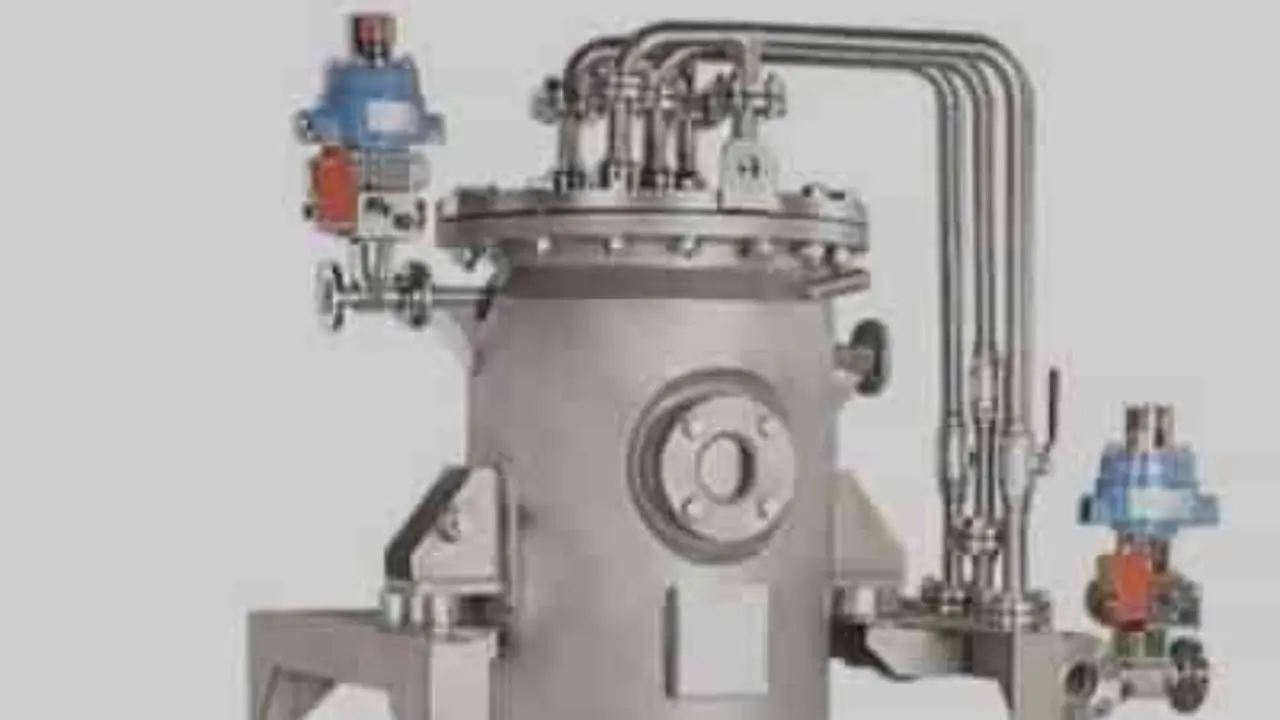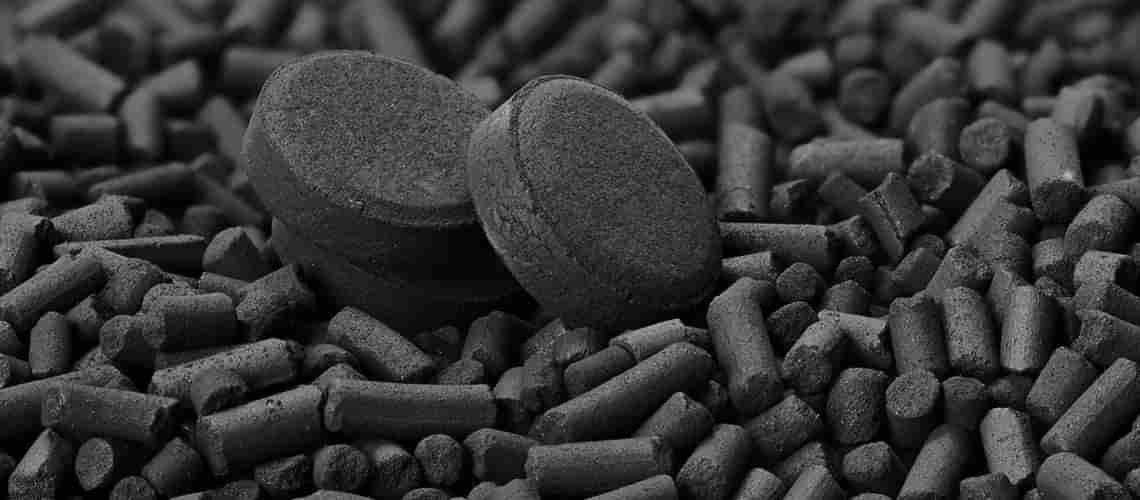- About
- Industries
- Products
- Wastewater Treatment
- Conventional Effluent Treatment: AQUASEP
- Toxic Refractory < 60,000 COD Removal: Catalytic Hydro-oxidation CHD-Ox
- Wet Air Oxidation for TOXIC > 60,000 COD : THERMOX
- Nanobubbles in Water Treatment: NANOPOREX-E
- Chemical-Free Cooling Tower Technology – A Sustainable Solution: ZEPHYR
- MVR for ZLD: Vapozem
- Membranes in wastewater Treatment: PROMEM
- TSS removal and Product recovery using Ceramics: PORESEP
- Heavy Metals and Trace Contaminant removal using Resins: SORBION
- Improving Efficiency of your sand bed filters: NANOMATRIX
- Choosing the Right technology for Wastewater treatment: Wastewater Treatability Studies’
- Reduce/Recover Oil from Wastewater: DISORB
- Produced Water Treatment: PWT
- Non Biofouling Membranes in wastewater Treatment: PROMEM-B
- Advanced Bioaugmentation Culture: BIOPORE
- Cavitation using Ultrasonics: RUSONICS-E
- Oxygen Generator System for Industries: OXYLIFE
- Process Solutions
- Precious Metal catalyst Filtration: CONTUFILT-M
- Activated Carbon Filtration: CONTUFILT-AC
- Raney Nickel Catalyst Filtration: CONTUFILT-RN
- Hot Gas Filtration: CONTUFILT – MH
- Biosolids removal using ceramics: PORESEP
- MVR for ZLD: VAPOZEM
- Ion Exchange-based RESINS: SORBION
- Dehydrating solvents by Zeolite Membranes: SOLVOSEP
- HiGee Continuous Distillation: ROTASEP
- Molecular Separation by Membranes: PROMEM
- Filtration & Separation
- Precious Metal catalyst Filtration: CONTUFILT – M
- Activated Carbon Filtration: CONTUFILT-AC
- Raney Nickel Catalyst Filtration: CONTUFILT-RN
- Hot Gas Filtration: CONTUFILT – MH
- Ceramic Dynamic Membrane Filtration: PORESEP
- MVR for ZLD: Vapozem
- Nano-Bubbles Improve Process Efficiency: NANOPOREX
- Alternate to Continuous Distillation / Rectification: ROTASEP
- Liquid-Liquid Extraction Mixer Settler: SEPARIX
- Ion Exchange-based RESINS: SORBION
- Pervaporation: Dehydrating Solvents and Separating Mixtures: SOLVOSEP
- Cartridges & Filter Bags: FLOWSEP™
- Molecular Separation by Membranes: Recovery and Isolation: PROMEM
- Colour / Organics / VOC Removal: CARBOSORB
- Oxygen Generator System for Industries: OXYLIFE
- RUSONIC – Sonochemistry
- Magnetic Separator Technology: MAG-Filt
- Wastewater Treatment
- Resource
- Contact Us
Conventional Wastewater Treatment Technologies | A Comprehensive Overview
Top Posts
AQUASEP is a conventional wastewater treatment system designed for cost-effective and sustainable treatment of large volumes of water, particularly for those that are not heavily polluted. It uses a combination of physical, chemical, and biological processes to purify water in stages.
What is Conventional Wastewater Treatment?
Conventional wastewater treatment is a structured process designed to remove contaminants from sewage or industrial effluent before its safe discharge into the environment or reuse. The process typically involves multiple stages:
- Primary treatment focuses on the removal of large solids and suspended particles through physical methods like sedimentation or screening.
- Secondary treatment uses biological processes, such as activated sludge or biofilms, where microorganisms break down organic matter.
- Tertiary treatment includes advanced filtration,Membrane separation chemical treatments, or disinfection to remove finer pollutants like nutrients, pathogens, and micropollutants.
This multi-stage approach ensures a gradual reduction in pollutant load, making conventional wastewater treatment effective, widely used, and adaptable for a variety of water contamination levels.
Key Stages of Conventional Wastewater Treatment
Conventional wastewater treatment happens in primary, secondary, and tertiary processes, each addressing different types of contaminants in the water.
Primary Treatment:
This involves physical separation of large solids and suspended matter. Clarifiers are used to settle sludge, while tube settlers enhance sedimentation. Oil removal units can be applied where necessary. Chemicals like coagulants (e.g., alum, ferric chloride) help in aggregating smaller particles.
Secondary Treatment:
Biological processes degrade organic pollutants. Activated sludge systems, managed by maintaining Mixed Liquor Suspended Solids (MLSS) and dissolved oxygen (DO) levels, use microorganisms to break down organic matter. Aeration tanks and biological reactors facilitate the process. Maintaining proper DO levels and dosing nutrients like nitrogen and phosphorus are critical. Sludge handling becomes challenging due to volume and composition.
Tertiary Treatment:
Advanced filtration through ultrafiltration (UF), nanofiltration (NF), or reverse osmosis (RO) removes finer particles and dissolved substances. High Total Dissolved Solids (TDS) waters are particularly challenging for RO systems, requiring pre-treatment and anti-scalant dosing.
Challenges of Conventional Wastewater Treatment
High Operational Costs
Conventional wastewater treatment faces several challenges. One of the primary concerns is energy consumption, particularly during aeration and pumping processes in secondary treatment. Aeration systems require high energy to maintain adequate dissolved oxygen levels for microbial activity, which leads to elevated operational costs.
Sludge Management
Another significant issue is sludge management, as wastewater treatment produces large amounts of waste sludge that requires safe disposal. Handling, dewatering, and disposal of sludge can be expensive and environmentally problematic, with concerns over contamination from heavy metals and chemicals.
Environmental Impact
The environmental impact of conventional wastewater treatment is considerable due to emissions from energy use, chemical dosing, and the potential release of micro-pollutants. Conventional wastewater systems often struggle with treating high Total Dissolved Solids (TDS) or removing emerging contaminants like pharmaceuticals and personal care products.
Diva Envitec offers innovative solutions to address these challenges. Our Nanoporex technology generates nanobubbles that enhance oxygen transfer, reducing energy consumption during aeration. The CHD-Ox advanced oxidation technology efficiently degrades complex organic pollutants with lower energy and chemical input.
For oil removal, our froth flotation process is highly effective in separating oils from water, easing the burden on primary and secondary treatment stages. These technologies deliver more sustainable, cost-effective, and efficient water treatment.
Innovations Enhancing Conventional Wastewater Treatment
At Diva Envitec Pvt. Ltd., we are pioneering innovations that significantly enhance conventional wastewater treatment processes, addressing key challenges like energy consumption, sludge management, and treatment efficiency. Our innovative solutions focus on maximizing sustainability while reducing operational costs for a variety of industrial applications.
Nanoporex
One of our most impactful technologies is Nanoporex, which uses nanobubble generation to dramatically improve oxygen transfer in aeration tanks. This innovation enhances microbial activity during secondary treatment, reducing energy consumption in aeration by up to 30%. It is particularly useful in industries with high biochemical oxygen demand (BOD) levels.
CHD-Ox
Our CHD-Ox advanced oxidation process is another game-changer. It effectively degrades complex organic pollutants, including hard-to-treat chemicals and pharmaceuticals, with minimal chemical dosing. CHD-Ox improves overall treatment efficiency, reduces sludge generation, and minimizes the environmental impact of treated effluents.
Froth Flotation
For industries dealing with oily wastewater, our froth flotation technology offers an effective solution for oil removal before secondary treatment. This process increases system efficiency by reducing the organic load.
These innovations not only optimize the performance of conventional treatment systems but also align with global sustainability goals by reducing resource consumption, improving effluent quality, and lowering treatment costs for our clients.
Benefits of Partnering with Diva Envitec
Partnering with Diva Envitec offers numerous benefits for organizations seeking efficient, sustainable wastewater treatment solutions. With our cutting-edge technologies and expertise in water management, we provide customized, energy-efficient systems designed to meet diverse industrial needs.
Reduce Operational Costs
Our advanced processes, such as Nanoporex nanobubble generation, improve oxygen transfer and reduce energy consumption, significantly lowering operational costs. This technology optimizes aeration in wastewater treatment, making it more sustainable.
Minimize Environmental Footprint
Our proprietary CHD-Ox advanced oxidation process enhances the breakdown of complex organic pollutants, improving treatment efficiency while reducing chemical use and sludge generation. This leads to lower sludge management costs and a minimized environmental footprint.
Better Performance
For industries dealing with oily wastewater, our froth flotation technology offers an effective method for oil removal, reducing contamination load and enhancing the performance of downstream treatment processes.
Scalable and Adaptable
Diva Envitec’s solutions are scalable and adaptable, making them suitable for various industrial applications, from manufacturing to petrochemicals. Our focus on sustainability and cost-effectiveness ensures that partners not only meet regulatory standards but also improve overall environmental performance.
By partnering with Diva Envitec, organizations gain access to innovative technologies, expert support, and tailored solutions that provide long-term benefits in water management and resource efficiency.
FAQ’s
What are the advantages and disadvantages of conventional wastewater treatment?
Conventional wastewater treatment is cost-effective and widely used, efficiently removing organic matter and suspended solids. However, it consumes significant energy, produces large sludge volumes, and struggles with high TDS or emerging pollutants.
What are the stages in wastewater treatment?
The stages in wastewater treatment include primary treatment for solid removal, secondary treatment for biological degradation of organic matter, and tertiary treatment for advanced filtration and disinfection to ensure water quality.
What are the major challenges in conventional wastewater treatment?
Major challenges in conventional wastewater treatment include high energy consumption, sludge management issues, difficulty in treating high Total Dissolved Solids (TDS), and the removal of emerging contaminants and micro-pollutants.
Conclusion
Conventional wastewater treatment remains a vital component of environmental management, effectively addressing many water quality issues. However, evolving challenges such as energy consumption, sludge management, and the treatment of complex pollutants necessitate innovation and adaptation.
By incorporating advanced technologies like those offered by Diva Envitec, the industry can enhance the efficiency and sustainability of traditional methods. This shift not only improves treatment outcomes but also aligns with global sustainability goals, ensuring a cleaner and safer environment for future generations.
Embracing these innovations is essential for progressing toward more resilient and effective wastewater management systems.
Learn more about the technology.
Related Posts

Industries
Wastewater Treatment
Separation Sciences
Contact
Sign in for latest updates
Stay informed with the latest updates from Diva Envitec! Sign up for our newsletter to receive exclusive news, insights, and case studies directly to your inbox.

Copyright © 2024 Diva Envitec
Terms of Service
Privacy Policy
Industries
Wastewater Treatment
Separation Sciences
Contact
Sign in for latest updates
Stay informed with the latest updates from Diva Envitec! Sign up for our newsletter to receive exclusive news, insights, and case studies directly to your inbox.


